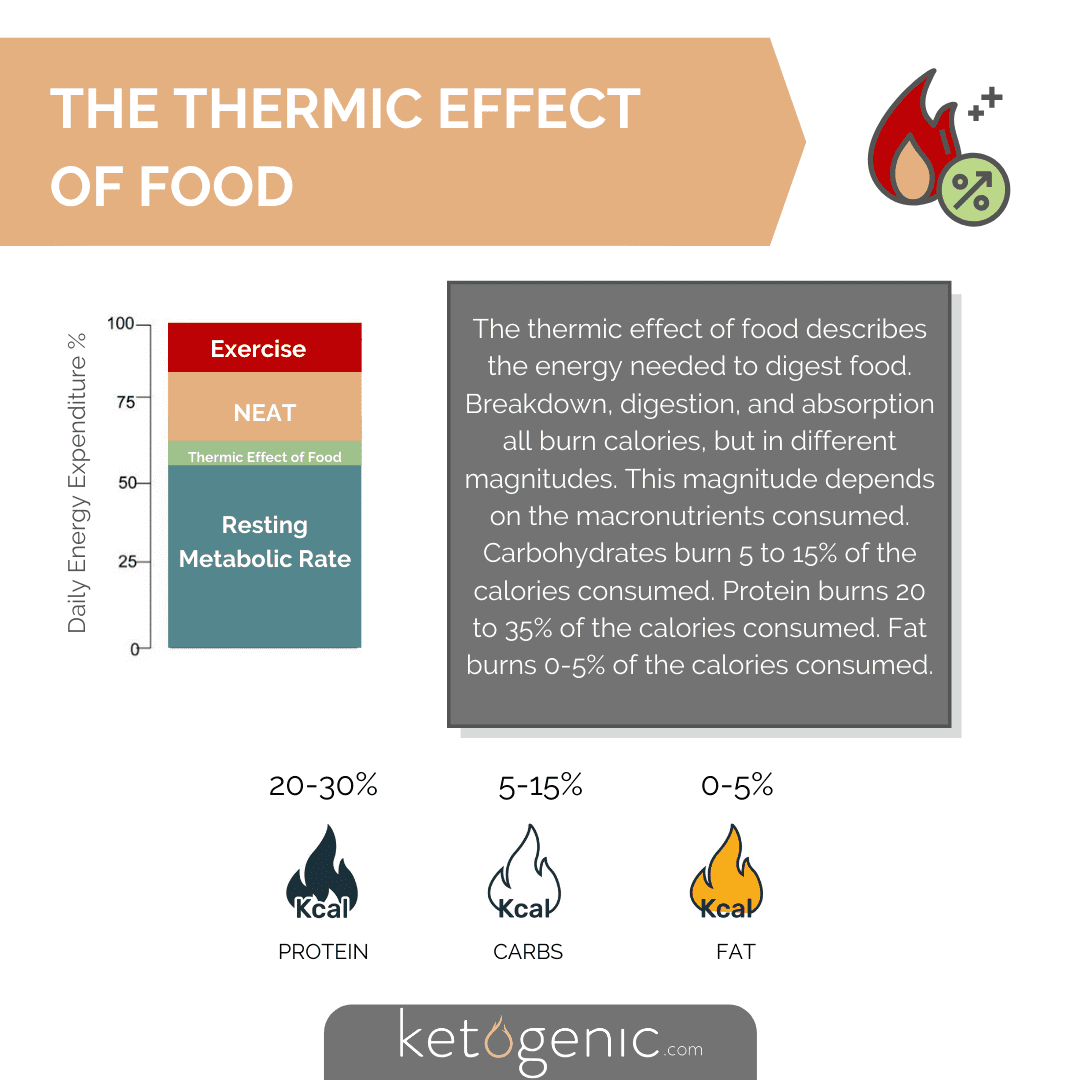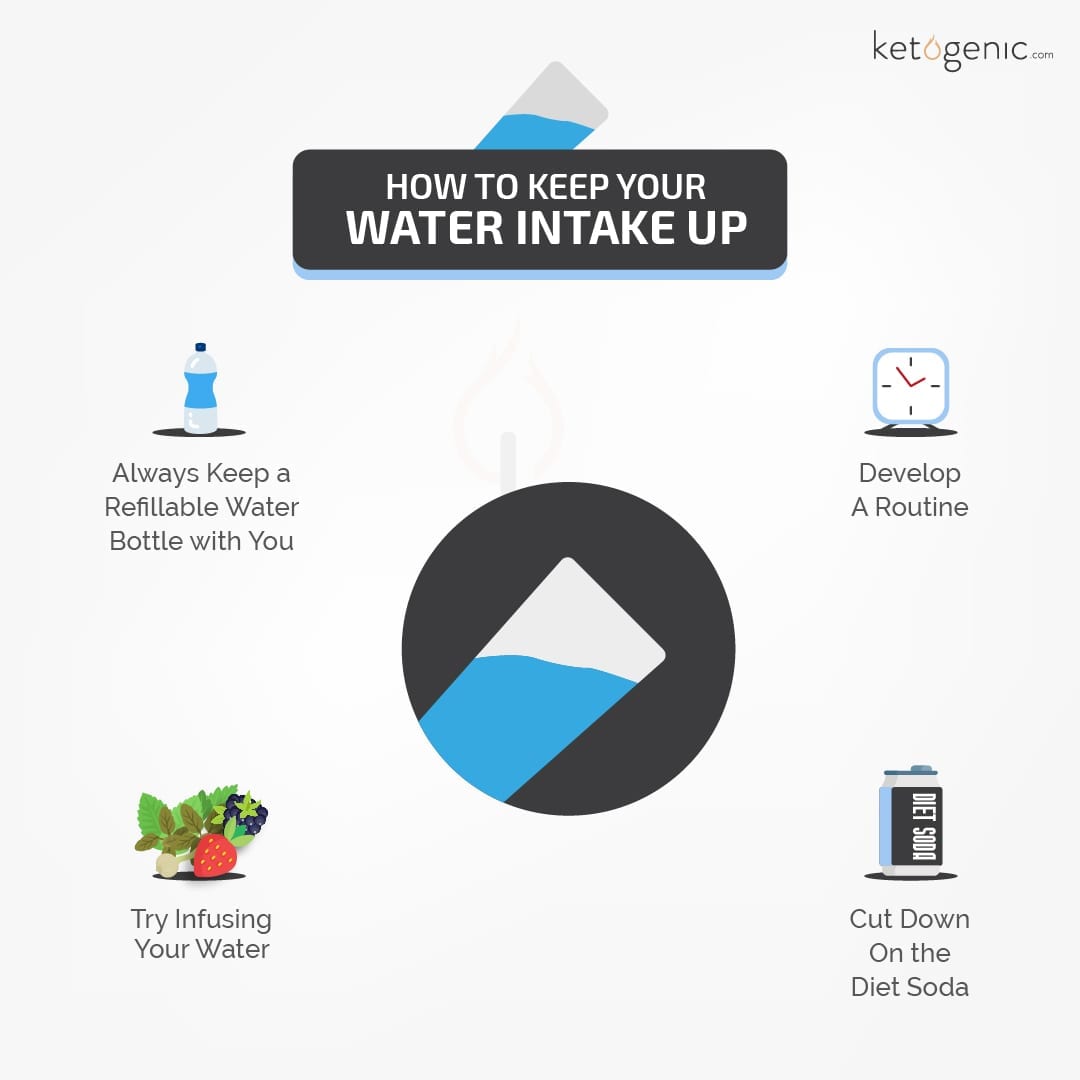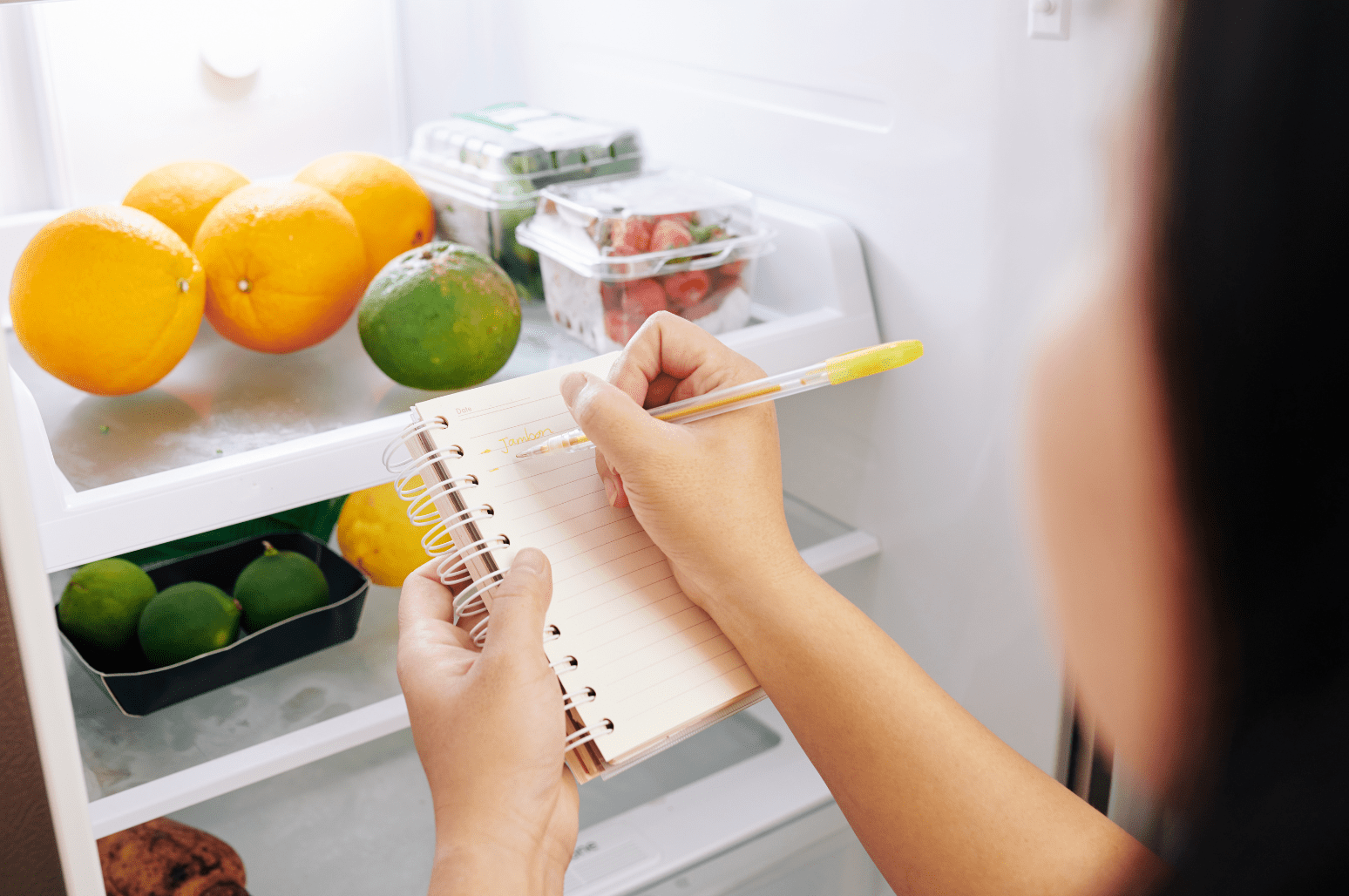
For some keto dieters, the weight seems to fall off like a leaf from a tree branch, but for others, it’s far from easy. Weight loss is a complex, multifaceted topic with lots of factors weighing in. If you’re not losing weight on keto or you seem to reach a plateau, there could be several reasons why.
Calorie Tracking and Deficits
Some weight loss and health experts believe you need to be in a caloric deficit to achieve weight loss. Calories are the units of energy you get from your food and drinks. When you consume fewer calories than you burn, you’re in a calorie deficit.

- Resting Energy Expenditure (REE) — The calories your body uses at rest for basic survival functions, such as breathing.
- Thermic Effect of Food — This refers to the calories your body expends digesting, metabolizing, and absorbing your food.
- Activity Energy Expenditure — The calories you expend during physical activities, including everything from fidgeting and household chores to sports and exercise [1].
If you’re not losing weight on keto, you might not be in a calorie deficit. You should be in a calorie deficit if you give your body fewer calories than it needs to support these three components of energy expenditure. Increasing your physical activity levels and/or consuming fewer calories helps you achieve a calorie deficit.
Experts are divided on the role of calories and calorie deficits when it comes to weight loss. Certain factors might also be involved with weight loss, such as hormones, toxicity, and stress. Some research shows a calorie deficit for long time periods can result in weight loss. On the other hand, you might gain weight if you consistently consume more calories than your body needs to perform these functions, known as a calorie surplus.
A calorie deficit of 500 calories per day is sufficient for weight loss for most people, and it’s unlikely to drastically affect your energy or hunger levels. Keep in mind that some foods are more satiating than others; for example, healthy fiber and protein are more satiating than refined carbohydrates [2].
Using an online calculator like the National Institute of Health’s Body Weight Planner can help you estimate your maintenance calories – the number of calories your body needs to support energy expenditure. These online calculators usually use your weight, age, sex, height, and physical activity level to determine your maintenance calories.
You can also weigh yourself daily, track your calories, and maintain the same level of daily activity for 10 days. If your weight has generally remained stable over the 10 days, the average number of calories you consumed per day is a good representation of your maintenance calories. To figure out your average daily calorie intake, divide the total number of calories you ate for 10 days by 10. Next, subtract 500 calories from this number to get an idea of your new daily intake goal for weight loss.
For example, if your maintenance calories are 2,000 per day, your new daily calorie goal for weight loss would be 1,500. As you lose weight, you need to adjust your calorie intake based on your weight loss goals. To ensure adequate nutrient intake and healthy weight loss, women shouldn’t consume fewer than 1,2000 calories daily, and men no fewer than 1,500 calories daily [3] [4].

Top Tips if You’ve Reached a Weight Loss Plateau
Here are some top tips if you’re not losing weight on keto:
1. Move More and Eat Less
Try increasing your physical activity levels and engaging in different types of exercises and activities. Mix it up and go from yoga and hiking to walking and strength training, depending on your ability level. If you eat less and move more, it could be helpful on your weight loss journey.
2. Be Cautious of Calorie-Dense Foods
Calorie-dense foods like some oils and heavy creams might take you out of your calorie deficit. You could try limiting or avoiding these foods to determine how it affects your weight.
3. Track Your Calories
If you’re not losing weight on keto, you might be eating too much! Try tracking your calories to make sure this isn’t the case.
If you’d like to track your calories, there are plenty of useful apps and devices available. These apps can streamline the process, so you don’t feel overwhelmed and can stay on top of your weight loss objectives.
4. Limit Processed Foods
Even keto-friendly processed foods can have too many calories or unhealthy additives that aren’t conducive to weight loss or wellness. The ingredients in many of these foods are also specifically designed or chosen by the food manufacturers to be addictive and leave you wanting more. It can be more difficult to avoid over-eating some of these food products. Minimally processed and natural whole foods are richer in vitamins, minerals, fiber, and other beneficial nutrients [5] [6].
5. Eat Primarily Home-Cooked Meals
Preparing and eating your food at home gives you total control over the ingredients, portion size, and calorie intake. Some studies show people who cook dinner at home most nights of the week consume fewer calories per day on average compared to those who ate out most nights.
Eating home-cooked meals is linked to better diet quality, lower body fat levels, reduced risks of heart disease and diabetes, and increased consumption of fruits and vegetables. Cooking at home might also save you money, especially if you meal-prep and plan for the week ahead.
Make sure you’re eating nutritious low-carb foods on the keto diet and add volume with low-calorie, nutrient-dense veggies. The healthy fat on the keto diet can help regulate body weight [7] [8] [9].

6. Drink more water
Studies show drinking more water can positively affect weight loss and maintenance [10] [11] [12].
Drinking water can increase the number of calories you burn. Within 10 minutes of drinking water, resting energy expenditure in adults has been shown to increase by 24-30%.
Like food, water also has a thermic effect on the body and can increase the metabolic rate [13] [14] [15] [16]. Drinking water before your meals might also reduce your appetite [17].
7. Try Intermittent Fasting
If you’re not losing weight on keto, you might want to try out Intermittent fasting (I.F.). With intermittent fasting, you fast at specific intervals and have fasted and feeding windows. You might choose to fast for 12-24 hours or occasionally practice long-term fasting for 24 hours or longer. Intermittent fasting is another way to lower your calorie consumption.
With intermittent fasting, your body makes stored body fat more accessible by adjusting your hormone levels. Due to these hormone changes, short-term fasting might enhance your metabolic rate by 3.6-14% [18,19].
8. Swap Carb-Heavy Favorites for Keto-Friendly Options
Don’t fall off the keto track by giving in to carb-heavy temptations that certainly won’t contribute to weight loss. Choose keto replacements like cauli rice and konjac noodles. Keto comfort foods make sure you stay in ketosis, but you still satisfy your cravings. If you have a sweet tooth, check out these top tips and keto dessert recipes!
9. Get Inspired and Join the Community!
If you’re not losing weight on keto, chances are, someone else is experiencing the same issue! Having a like-minded keto community gives you valuable support. Join the keto community and get motivated. Take it a step further and join the keto club to receive exclusive articles, doctor guides, Ebooks, and more. Another great option is the OK32 system — a user-friendly blueprint including recipes, guides, workout programs, and a customizable meal plan feature.
Are You Not Losing Weight on Keto?
Have you reached a weight loss plateau? Try implementing some of these tips and see if they help you break through your plateau!
References
Hall, K. D., Heymsfield, S. B., Kemnitz, J. W., Klein, S., Schoeller, D. A., & Speakman, J. R. (2012). Energy balance and its components: Implications for body weight regulation.American Journal of Clinical Nutrition, 95(4), 989-994.
Eat Right. (2016). Position of the Academy of Nutrition and Dietetics: Interventions for the treatment of overweight and obesity in adults. Journal of the Academy of Nutrition and Dietetics, 116(1), Google Scholar1From the Center for Human Nutrition, Johns Hopkins Bloomberg School of Public Health, Baltimore, MD (LC and BC); the Department of Internal Medicine, Johns Hopkins School of Medicine, Baltimore, MD (LJA); the Division of Prevention and Population Sciences, National Heart, Lung, and Blood Institute, Bethesda, MD (CL); the Department of Medicine, Duke University Medical Center, Durham, NC (P-HL); the Pennington Biomedical Research Center, Baton Rouge, LA (CMC); the Kaiser Permanente Center for Health Research, Portland, OR (PJE); the Division of Clinical Nutrition & Dietetics, University of Alabama at Birmingham, Birmingham, AL (JDA); the Diet Assessment Center, Pennsylvania State University, University Park, PA (DM); and the Duke Hypertension Center, Duke University, Durham, NC (BCB and LPS).
Heymsfield, S. B., Peterson, C. M., Thomas, D. M., Hirezi, M., Zhang, B., Smith, S., Bray, G., & Redman, L. (2017). Establishing energy requirements for body weight maintenance: Validation of an intake-balance method. BMC Research Notes, 10, 220.
United States Department of Agriculture. Dietary Guidelines for Americans 2015-2020 Eighth Edition,
Hall, K. D. (2018). Did the food environment cause the obesity epidemic? Obesity (Silver Spring), 26(1), 11-13.
Hall, K. D., Ayuketah, A., Brychta, R., Cai, H., Cassimatis, T., Chen, K. Y., Chung, S. T., Costa, E., Courville, A., Darcey, V., Fletcher, L. A., Forde, C. G., Gharib, A. M., Guo, J., Howard, R., Joseph, P. V., McGehee, S., Ouwerkerk, R., Raisinger, K., Rozga, I., Stagliano, M., Walter, M., Walter, P. J., Yang, S., & Zhou, M. (2019). Ultra-processed diets cause excess calorie intake and weight gain: An inpatient randomized controlled trial of Ad Libitum food intake. Cell Metabolism, 30(1), 67-77.
Wolfson, J. A., & Bleich, S. N. (2015).Is cooking at home associated with better diet quality or weight-loss intention? Public Health and Nutrition, 18(8), 1397-1406.
Mills, S., Brown, H., Wrieden, W., White, M., & Adams, J. (2017). Frequency of eating home cooked meals and potential benefits for diet and health: Cross-sectional analysis of a population-based cohort study. International Journal of Behavioral Nutrition and Physical Activity, 14, 109.
iwari, A., Aggarwal, A., Tang, W., & Drewnowski, A. (2017). Cooking at home: A strategy to comply with U.S. dietary guidelines at no extra cost. American Journal of Preventive Medicine, 52(5), 616-624.
Weiss, E. C., Galuska, D. A>, Khan, L. K., & Serdula, M. K. (2006). Weight-control practices among U.S. adults, 2001-2002. American Journal of Preventive Medicine, 31(1), 18-24.
Sciamanna, C. N., Kiernan, M., Rolls, B. J., Boan, J., Stuckey, H., Kephart, D., Miller, C. K., Jensen, G., Hartmann, T. J., Loken, E., Hwang, K. O., Williams, R. J., Clark, Schubart, J. R., Nezu, A. M., Lehman, E., & Dellasega, C. (2011). Practices associated with weight loss versus weight-loss maintenance results of a national survey. American Journal of Preventive Medicine, 41(2), 159-166.
Muckelbauer, R., Sarganas, G., Gruneis, A., Muller-Nordhorn, J. (2013). Association between water consumption and body weight outcomes: A systematic review. American Journal of Clinical Nutrition, 98(2), 282-299
Dennis, E. A., Dengo, A. L., Comber, D. L., Flack, K. D., Savla, J., Davy, K. P., & Davy, B. M. (2010). Water consumption increases weight loss during a hypocaloric diet intervention in middle-aged and older adults.Obesity, 18(2), 300-307.
Boschmann, M., Steiniger, J., Hille, U., Tank, J., Adams, F., Sharma, A. M., Klaus, S., Luft, F. C., Jordan, J. (2003). Water-induced thermogenesis. Journal of Clinical Endocrinology and Metabolism, 88(12), 6015-6019.
Boschmann, M., Steiniger, J., Franke, G., Birkenfeld, A. L., Luft, F. C., & Jordan, J. (2007). Water drinking induces thermogenesis through osmosensitive mechanisms. Journal of Endocrinology & Metabolism, 92(8), 3334-3337.
Brown, C. M., Dulloo, A. G., & Montani, J-P. (2006). Water-induced thermogenesis reconsidered: The effects of osmolality and water temperature on energy expenditure after drinking. Journal of Clinical Endocrinology and Metabolism,
Van Walleghen, E. L., Orr, J. S., Gentile, C. L., & Davy, B. M. (2007). Pre-meal water consumption reduces meal energy intake in older but not younger subjects. Obesity, 15(1), 93-99.
Mansell, P. I., Fellows, I. W., Macdonald, I. A. (1990). Enhanced thermogenic response to epinephrine after 48-h starvation in humans. American Journal of Physiology, 258, R87-93.
Zauner, C., Schneeweiss, B., Kranz, A., Madl, C., Ratheiser, K., Kramer, L., Roth, E., Schneider, B., & Lenz, K. (2000). Resting energy expenditure in short-term starvation is increased as a result of an increase in serum norepinephrine.American Journal of Clinical Nutrition, 71(6), 1511-1515.










